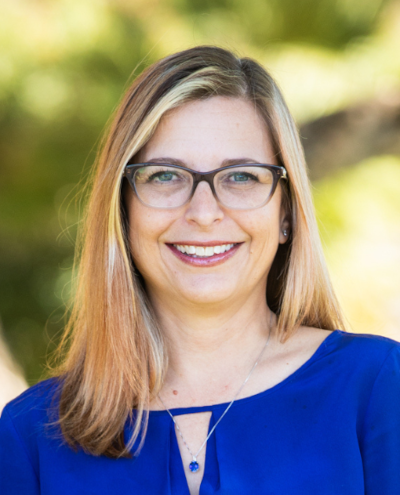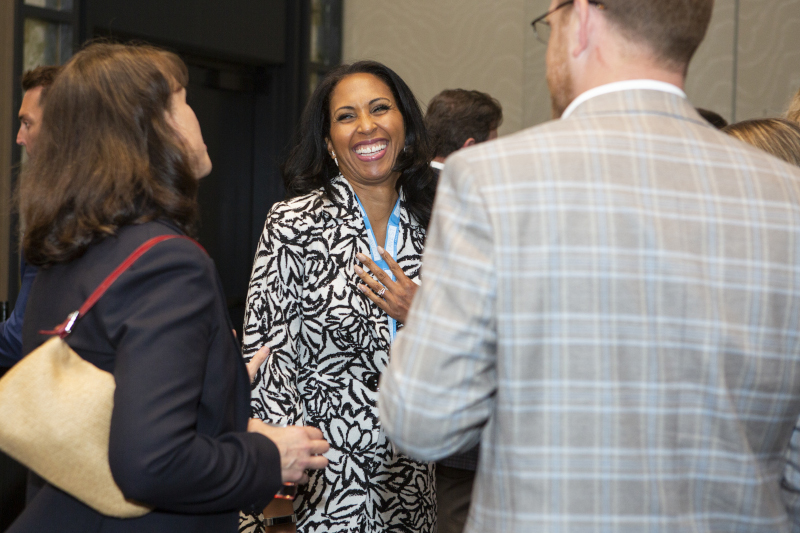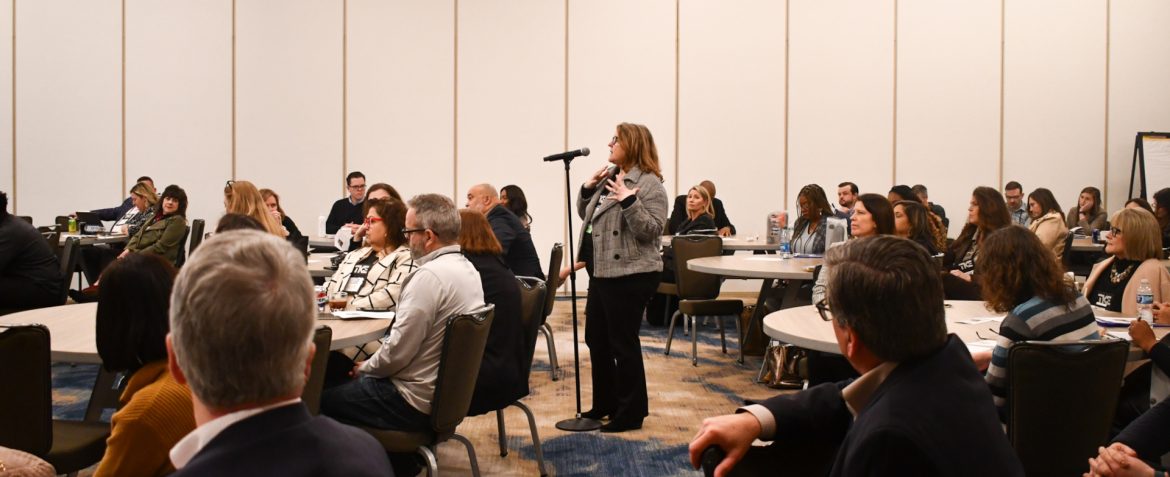BOMA International
Housing on the Agenda
Leading the Charge in Commercial Real Estate Innovation and Advocacy
In the exciting and fast moving world of commercial real estate, the Building Owners and Managers Association (BOMA) International has stood the test of time, continually setting the standard for excellence. Founded in 1907, BOMA has been a driving force in the industry for over a century, growing to include a network of 81 local associations across the United States and 16 international affiliates. The association represents a diverse array of professionals- owners, managers, and service providers- across all types of commercial properties, including office, industrial, medical, corporate, and mixed-use buildings.
A Rich History Rooted in Innovation
BOMA’s origins trace back to a time when the office building industry was in its infancy. Building owners and managers, eager to understand the complexities of operating these new structures, began to share insights and best practices. From its first conference in 1908, attended by 75 professionals from 26 cities, BOMA quickly established itself as the go-to resource for commercial real estate knowledge. Throughout its history, the association has been instrumental in creating the tools and standards that define the industry today. The Standard Method of Floor Measurement, introduced in 1915, remains a cornerstone of office space management.

President and CEO, Henry Chamberlain
Over the years, BOMA has consistently focused on operational performance, and has long been a champion for workforce development. A key focus is not only attracting talent to real estate careers but also providing the education and training necessary for professionals to grow and thrive. “Because at the end of the day, it’s all about creating value for the companies, and for people in their career, so they want to stay in real estate,” President and CEO, Henry Chamberlain emphasizes.
BOMA has also been a strong advocate, engaging in energy legislation, ADA compliance, and the increasingly critical issue of decarbonization. Tax policy is another top priority, and the association actively works on these issues both nationally and at the local level, helping to create healthy and flourishing marketplaces to do business in.
What truly sets the organization apart is its emphasis on building relationships. Chamberlain remarks, “The magic in the middle is the business networking, people coming together, because they’ve developed those relationships, comparing insights into what works, what doesn’t work, and sharing their contacts. It’s created a thriving network and community around BOMA for a long, long time.”
A Voice for the Industry
At the forefront of BOMA’s mission is advocacy. As Chamberlain explains, the association is deeply involved in shaping legislation that affects the commercial real estate sector. From tax policy to energy efficiency, the association’s influence is felt at both the federal and local levels. “We’re always battling taxes and having conversations about how business can thrive and also make a contribution to the economy and the federal government,” he says, mentioning the 2017 Tax Act which included provisions like carried interest, leasehold depreciation, and capital gains. “We’ll be renegotiating that and incorporating some of the things we’ve been working on the last few years, which includes green tax credits, as we want to decarbonize and invest in reshaping some of the older building stock where possible,” he maintains. “So, collaboratively with the other groups around DC and elsewhere, we will really be looking at the 2025 tax package, and what that’s going to look like.”
BOMA is also focused on legislation that supports vocational education and certification. “We’ve got a bill out there that’s universally supported by lots of different associations around taking a look at investing in the future workforce,” Chamberlain expands. “There’s a big focus on staffing, attracting talent, developing talent. There aren’t enough people to fill all of those jobs, so training them up is very important to us.”

Sr. Vice President, Mary Lue Peck
There is also a heavy focus on decarbonization and legislative efforts to promote high-performance buildings. A key legislative initiative that BOMA has been advocating for over the past three years is the Small Business Energy Loan Enhancement Act (HR 1491). This bipartisan bill seeks to increase the existing loan vehicle from $5 million to $10 million. “That would be a game changer for the kind of investment that needs to be made in building infrastructure,” he asserts. “It’s not a handout, we would pay that back. It’s a loan. But we think that those are the kinds of important resources needed for people who are trying to invest in the building stock to reach some of the goals that are in the marketplace.”
As a community steward, BOMA is also tackling the challenges posed by increased property crime and the need for improved city services, particularly for the homeless. “We’re trying to get people back into their offices in bigger numbers. We’re somewhere between two and a half to three days in the office now,” depicts Chamberlain. “We’d like to have those environments that create the robust business communities we want to do business in.” With this in mind, the association is working with city governments to create environments that are safe and welcoming for both residents and businesses.
BOMA also distinguishes itself as the only commercial real estate group involved in developing building codes, actively participating in committees with the American Society of Heating, Refrigeration, and Air Conditioning Engineers (ASHRAE) and the International Code Council to set standards. “We participate in those committees so we can set appropriate bars for existing buildings for energy efficiency or ventilation or other operating issues,” Chamberlain outlines. “In new construction they can certainly start with whatever the new codes are, but existing building stock needs more of a bridge to make that happen.”
Building the Future
Education has always been a pillar of BOMA’s offerings. Traditionally delivered through classroom settings, options range from foundational courses in property management to advanced certifications for real estate professionals. Today, BOMA offers a blend of in-person and online learning options, including self-paced and instructor-led courses. They are increasingly focusing on shorter modules that allow professionals to gain specific knowledge. “We’re creating a whole array of short courses online to allow you to build your certifications towards a designation,” portrays Chamberlain.
BOMA’s annual conference, held in Philadelphia, provides a uniquely immersive learning experience. “It is three and a half days, a combination of nine tracks of programming, technology, operations, leadership, all sorts of different programming that people can take, but matched up with a trade show,” Chamberlain elaborates. “So, you can see what the new products and services are out there, and then match it up with the education, and then tour the trade show or take education with your colleagues.” Additionally, BOMA hosts a large medical real estate conference, catering to a wide range of industry professionals from hospital systems to brokers. “It’s a deal making forum,” he says. “It’s a must attend event with lots of different delivery vehicles on the national level, and on the local level as well.”
International Reach and Global Collaboration
Chamberlain highlights that BOMA is well-established across the U.S., Canada, and Mexico, with growing influence in Asia, including China, Japan, Korea, and other Pacific Rim countries. BOMA also has active groups in South Africa, Australia, New Zealand, and more recently, Costa Rica and Panama. These international associations represent various property types and focus on education, training, and advocacy, particularly around building codes and public policy.
Currently, BOMA is focusing on decarbonization strategies worldwide, recognizing that countries approach these challenges differently. “In some countries, institutional investors are leading the charge around decarbonization. Some countries are mandating,” he reports. “So, it is a much more robust discussion around public policy issues across the globe.”

Recognizing Excellence
BOMA is also committed to recognizing excellence within the industry. The BOMA 360 Performance Program, which covers six modules ranging from operations to community relations, is a key training ground for property managers. BOMA is also introducing the BOMA BEST program, which focuses on sustainability and smart technology.
The Outstanding Building of the Year (TOBY)awards recognize the best buildings across property types. “We’ve been celebrating the best of the best on an annual basis since 1985, really highlighting case studies of the really good buildings, the really good teams, so that people can look through the books, meet those folks, and learn from each other,” Chamberlain acknowledges. “We like to celebrate the people and the teams, and of course, the buildings that they’re proud to be managing and operating, working with our owners.”
A Positive Outlook
As for the future, Chamberlain says, “You have to be optimistic. Property manager owners, property managers, real estate folks, are all about creating value, taking on challenges, and making things happen out the other side. The fact is, after every cycle, real estate has thrived because people have reimagined and reinvented it.” Whether it’s influencing legislation, offering cutting-edge training, or recognizing outstanding performance, BOMA remains committed to supporting its members and shaping the future of commercial real estate.
AT A GLANCE
BOMA International
What: A leading building owners and managers association with an international presence.
Where: Headquarters in Washington DC
Website: www.boma.org


